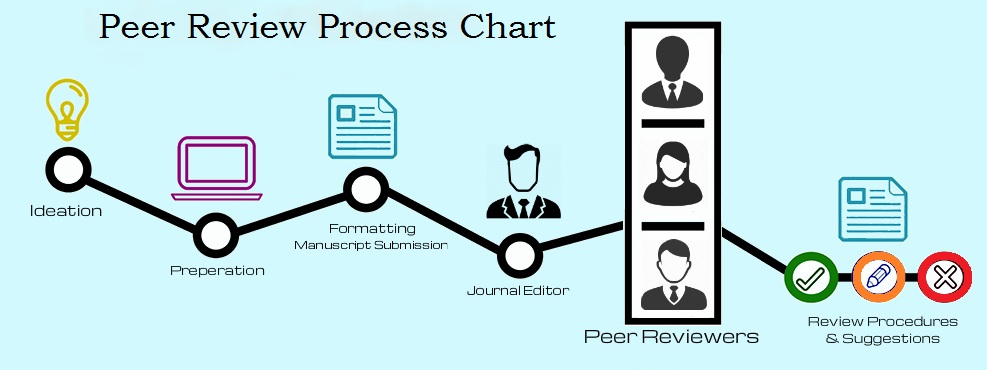
JOURNAL OF CLINICAL RESEARCH IN CANCER
(Open Access)
Average Acceptance to publication time: (5-7 days)
Average Article processing time: (30-45 days)
PEER REVIEW PROCESS
Reviewers play a central role in scholarly publishing. Peer review helps validate research, establish a method by which it can be evaluated, and increase networking possibilities within research communities. Despite criticisms, peer review is still the only widely accepted method for research validation.
Peer review has been a formal part of scientific communication since the first scientific journals appeared more than 300 years ago. The Philosophical Transactions of the Royal Society is thought to be the first journal to formalize the peer review process.
Peer Review Process

Types of peer review
Single blind review
The names of the reviewers are hidden from the author. This is the traditional method of reviewing and is the most common type by far.
- Reviewer anonymity allows for impartial decisions – the reviewers will not be influenced by the authors.
- Authors may be concerned that reviewers in their field could delay publication, giving the reviewers a chance to publish first.
- Reviewers may use their anonymity as justification for being unnecessarily critical or harsh when commenting on the authors’ work.
Double-blind review
Both the reviewer and the author are anonymous.
- Author anonymity prevents any reviewer bias, for example based on an author's country of origin or previous controversial work.
- Articles written by prestigious or renowned authors are considered on the basis of the content of their papers, rather than their reputation.
- Reviewers can often identify the author through their writing style, subject matter or self-citation.
Open review
Reviewer and author are known to each other.
- following their own agenda, and encourage open, honest reviewing.
- Others see open review as a less honest process, in which politeness or fear of retribution may cause a reviewer to withhold or tone down criticism
Every article submitted to the journal is subjected to strict plagiarism check through our double check process involving software and manual checking. Once article passes through this step, articles are subjected to editorial review for scope, relevance and other standard requirements.
Any Queries? Ask us a question at +91 7002-412-271